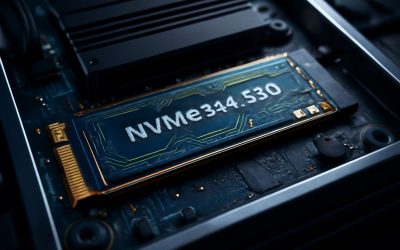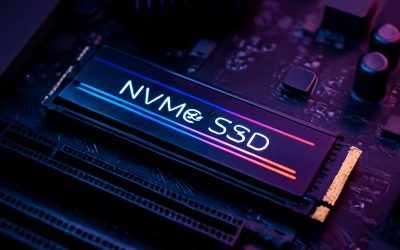NVMe (Non-Volatile Memory Express) is a storage interface specification that allows for higher speeds between SSDs and the host computer. It also provides improved data transfer performance and reduced latency, especially when compared to traditional SATA and SAS protocols.
Using NVMe drives in your server infrastructure is key for achieving a fast website load speed that will convert your visitors into customers and improve your search engine rankings. However, before you make the switch to NVMe hosting services, there are a few things you need to know.
The NVMe standard is a set of specifications that define how host software communicates with non-volatile memory across multiple transports, including PCIe Express, RDMA and TCP. It is designed to take advantage of the parallel nature of flash memories and the ability of PCIe-based storage devices to use a direct connection to the motherboard to achieve high-speed data transfer speeds.
A single NVMe drive can be connected to many computers via a PCIe bus, so you can scale the storage capacity of your business without adding additional servers or infrastructure. This makes it an ideal solution for a wide range of applications.
NVMe can support multiple queues and scatter/gather IOs, allowing the host software to change their priority based on workload demands. These features help to maximize performance by minimizing CPU overhead.
One of the biggest advantages that NVMe offers is increased sequential read and write speeds. These speeds can be up to six times faster than SATA drives.
Moreover, NVMe can provide up to 10 microseconds of latency less than the legacy SATA and SAS protocols. This is a big deal, especially in applications that require low latency such as real-time analytics and emerging technologies like machine learning.
How NVMe works
NVMe is a storage architecture that takes advantage of the parallel nature of flash memories and uses a direct connection to the motherboard to achieve data transfer speeds that are up to four times faster than SATA SSDs. This makes it an ideal choice for a wide range of applications that demand fast data transfer.
It is also future-proof, allowing it to be extended to work with not-yet-invented persistent memory technologies. This helps to ensure that NVMe can be deployed in the most demanding environments and provide exceptional performance for a wide variety of applications.
A NVMe SSD can be inserted into a variety of form factors, including U.2, M.2 and EDSFF. These forms of NVMe are designed to be compatible with existing bays that were originally intended for SATA and SAS devices.
The NVMe architecture is scalable and extends to other storage devices, such as external USB drives. The protocol is also compatible with a wide range of host interfaces, including USB 3.0 and HDMI 2.0.
NVMe is a standard that is growing in popularity and being adopted by businesses around the world, bringing with it an array of benefits that can be used to increase performance, lower costs and deliver the endurance needed for Fast Data. These benefits are enabling a new breed of data-centric computing, accelerating the pace of enterprise growth and making data management more economical for any organization.



0 Comments